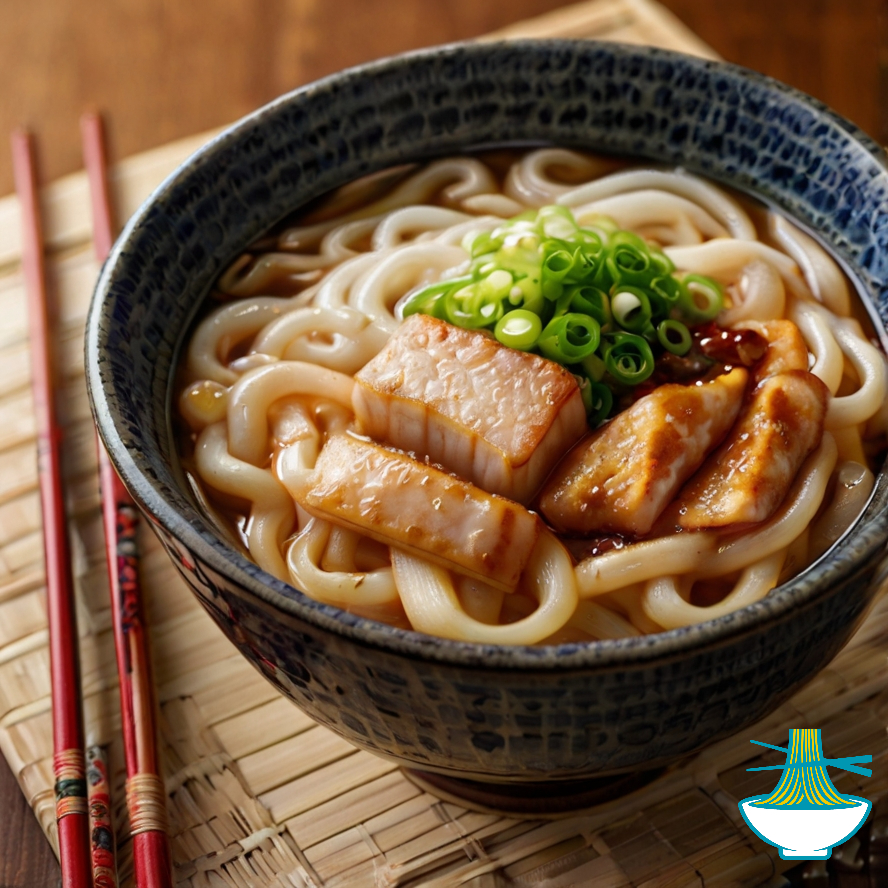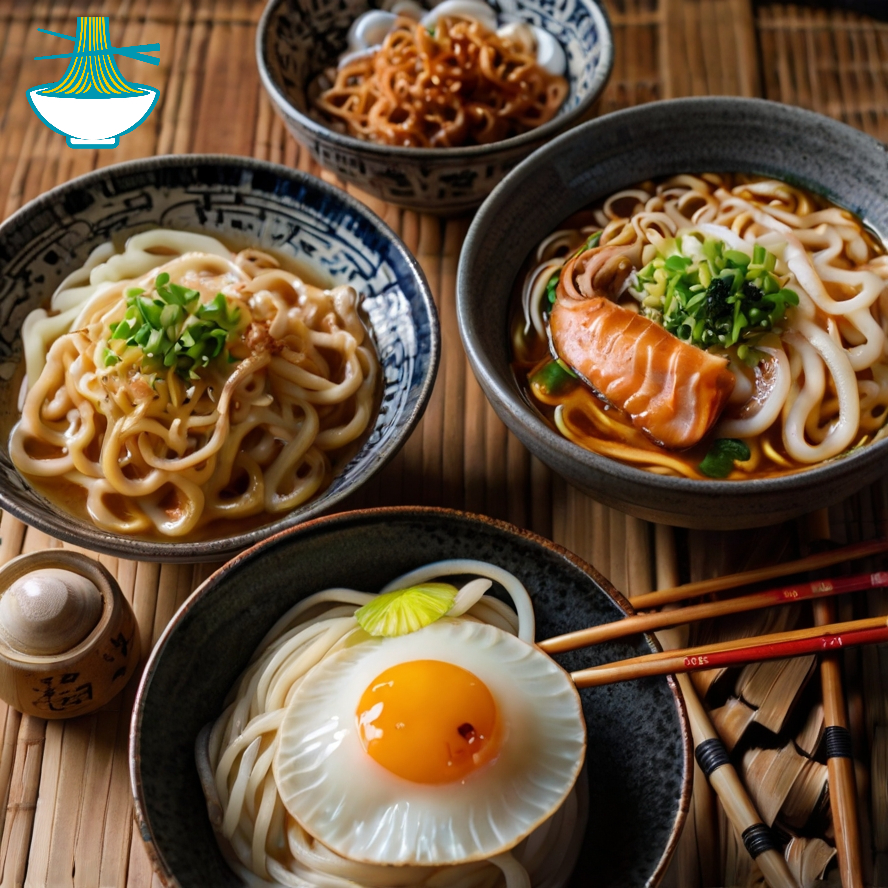Embark on a culinary journey through the heart of Japan with our immersive exploration of Udon noodles. Known for their thick, chewy texture and versatility, Udon noodles are a staple in Japanese cuisine, celebrated for their comforting flavors and rich history. Join us as we delve into the intricate process of crafting these delectable noodles, from hand-kneading the dough to the precise boiling techniques that yield the perfect consistency.
Discover the regional variations of Udon across Japan, each offering its own unique twist on this beloved dish. From the hearty, brothy bowls of Kansai-style Udon to the more delicate, soy sauce-infused flavors of Kanto-style Udon, there's a world of culinary diversity to explore. Learn about the traditional toppings and accompaniments that complement Udon, from tempura to thinly sliced green onions, enhancing its already tantalizing taste.
Experience the bustling Udonya (Udon restaurants) scattered throughout Japan, where skilled chefs showcase their mastery in preparing these iconic noodles. Whether you're strolling through the vibrant streets of Tokyo or wandering the historic lanes of Kyoto, you'll find an array of Udonya offering a true taste of Japanese culinary heritage.
Join us on a gastronomic adventure as we celebrate the essence of Japanese cuisine through the timeless allure of Udon noodles. From its humble origins to its status as a culinary icon, Udon embodies the essence of Japanese culture, inviting you to indulge in a symphony of flavors with each savory slurp.
Ingredients:
- 2 cups all-purpose flour
- 1/2 cup water (plus more if needed)
- 1 tablespoon salt
Instructions:
1- In a large mixing bowl, combine the all-purpose flour and salt. Make a well in the center of the flour mixture.
2- Gradually add the water to the well while stirring with a fork or chopsticks. Continue mixing until a rough dough forms.
3- Knead the dough on a lightly floured surface for about 10-15 minutes, or until the dough becomes smooth and elastic. If the dough feels too dry, add a little more water, one tablespoon at a time. If it's too sticky, add a bit more flour.
4- Once the dough is smooth, shape it into a ball and cover it with plastic wrap. Let it rest at room temperature for about 30 minutes.
5- After resting, divide the dough into 4 equal portions. Take one portion and flatten it into a rectangle shape with your hands.
6- Using a rolling pin, roll out the dough into a thin sheet, about 1/8 inch thick. Make sure to dust the dough and rolling pin with flour as needed to prevent sticking.
7- Fold the rolled-out dough into thirds, like folding a letter. Then, use a sharp knife to cut the dough into thin strips, about 1/4 inch wide.
8- Unfold the cut strips and gently separate them. Repeat this process with the remaining dough portions.
9- Bring a large pot of water to a boil over high heat. Once boiling, add the udon noodles to the pot, stirring gently to prevent sticking.
10- Cook the udon noodles for about 8-10 minutes, or until they are tender but still chewy. Keep an eye on them and stir occasionally to ensure even cooking.
11- Once cooked, drain the udon noodles in a colander and rinse them under cold water to stop the cooking process and remove excess starch.
12- Serve the udon noodles immediately in your favorite broth or sauce, or use them in stir-fries or salads. Enjoy your homemade Japanese udon noodles!
Note: These udon noodles can be stored in an airtight container in the refrigerator for up to 3 days. Simply reheat them in hot water before serving if desired.
Nutritional Values :
Here’s the breakdown of **Nutritional Values** and **Benefits** for the ingredients listed:
All-Purpose Flour (2 cups, ~240g):
- Calories: 880 kcal
- Fat: 2g
- Carbohydrates: 184g
- Protein: 24g
Benefits: Provides the base for the dough; high in carbohydrates for energy and contains some protein.
Water (1/2 cup, ~120ml):
- Calories: 0 kcal
- Fat: 0g
- Carbohydrates: 0g
- Protein: 0g
Benefits: Hydrates and binds the flour to form dough.
Salt (1 tablespoon):
- Calories: 0 kcal
- Fat: 0g
- Carbohydrates: 0g
- Protein: 0g
Benefits: Enhances flavor; helps with dough texture and preservation.
Nutritional Values for Entire Mixture:
- Calories: 880 kcal
- Fat: 2g
- Carbohydrates: 184g
- Protein: 24g
This information provides a comprehensive overview of the nutritional content and benefits of the ingredients used in the dough.
Please note that these values are approximate and can vary based on factors such as brand, specific type of ingredients used, and serving sizes.


Comments